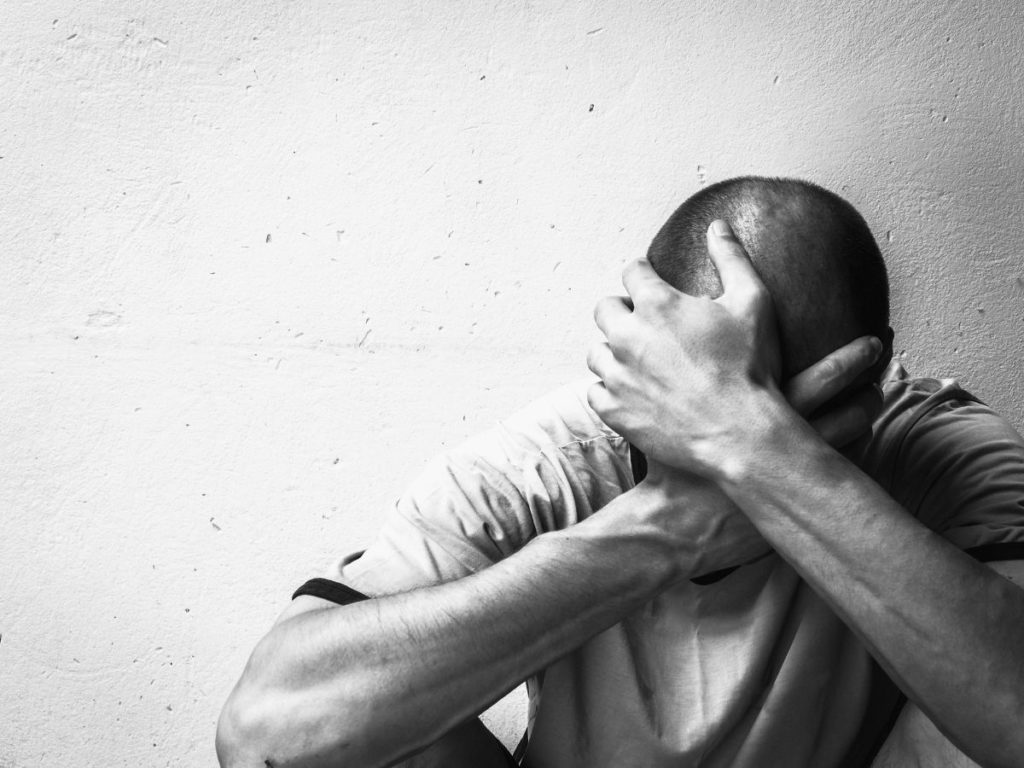What is Psychosis?
Psychosis is characterized by an impaired relationship with reality. It’s a symptom of serious mental disorders. People who are experiencing psychosis may have either hallucinations or delusions. Hallucinations are sensory experiences that occur within the absence of an actual stimulus. For example, a person having an auditory hallucination may hear their mother yelling at them when their mother isn’t around. Or someone having a visual hallucination may see something, like a person in front of them, who isn’t there.
What is Alcohol-Induced Psychosis?
Alcohol-Induced Psychosis is part of a condition known as secondary psychosis. This type of psychosis is related to those in which symptoms manifest in association with known medical conditions or substance use behavior. The episodes may be similar in presentation to other primary psychoses, the main difference being the reason why it arises. Primary psychosis happens as a result of a primary condition such as schizophrenia. An alcohol-induced psychosis can occur in a setting of either acute intoxication or alcohol withdrawal, but may also arise in chronic drinkers. For example, people with alcohol use disorders with long-term, compulsive patterns of alcohol consumption.
Studies show that people with psychotic disorders are much more likely to abuse alcohol or drugs than people who do not experience psychosis. The Substance Abuse and Mental Health Services Administration (SAMHSA) reports that among Americans aged 18-25, approximately 15.1% had a Substance Use Disorder (SUD) in 2016. Of those, about 2.1% also had a co-occurring serious mental illness. In that same year, 13-51% of young people for whom treatment had been initiated for a first-episode psychosis also had a co-occurring SUD. Research also suggests that approximately 20-53% of young adults with first-episode psychosis also met the criteria for an AUD at some point in their lives.
Once a person develops an alcohol-induced psychosis, the symptoms usually appear quickly and resolve within days to weeks. Though the resolution of symptoms is usually quick, continued drinking after experiencing an alcohol-induced psychotic episode could trigger the onset of longer-lasting psychotic disorders in those predisposed to such conditions.

Alcohol-Induced Psychosis can happen in various cases, not only when a person is highly intoxicated with alcohol. As we mentioned before, It also can occur with alcohol withdrawal as well as in patients with chronic alcohol use disorder.
As stated by the scientific piece ‘Alcohol-Related Psychosis’, H. Stankewicz; J. Richards; P. Salen, published by Stat Pearls, “It is a relatively rare consequence of alcohol use. However, it may be more prevalent than classically thought depending on the inclusion criteria used for diagnosis. In alcohol-induced psychosis, symptoms of psychosis present during or shortly after heavy alcohol intake. Clinically, alcohol-induced psychosis is similar to schizophrenia but is a unique and independent condition. It is characterized by hallucinations, paranoia, and fear”.
Can Alcohol Cause Psychosis?
Alcohol-induced psychosis usually appears after severe substance abuse or during withdrawal. The exact reason why alcohol-induced psychosis happens is still debated. The most accepted theory is that long-term alcohol abuse changes the way the neural receptors in your brain work. Neural receptors help your brain recognize the reality in front of you and are often impaired when you hallucinate.
While the exact cause is still debated, experts agree that long-term alcohol abuse can lead to changes in the brain involving neural receptors. Alcohol seems to change how these receptors work and impair your ability to tell what’s real from what’s not. This may result in psychotic symptoms like hallucinations or delusions, which are characteristic of psychosis. However, in some cases, even when you don’t have psychosis it can trigger your brain to release hallucinations or delusions. Alcohol-induced psychosis is more common among alcoholics who are experiencing withdrawal symptoms.

Alcohol-Induced Psychosis Symptoms
As with any form of psychosis, patients with alcohol-induced psychosis may present with a wide range of symptoms. However, the presence of significant hallucinations or delusions must be evident. The psychosis is more extreme than what could potentially be attributed to alcohol intoxication or withdrawal. Special attention should be paid to mental status including flat affect or responding to internal stimuli. Additionally, a good physical exam needs to be done to look for possible trauma or infectious causes of altered mental status.
Psychosis is sometimes thought of as a break with reality because the cognitive and perceptual changes associated with certain psychotic illnesses may give rise to symptoms such as seeing, hearing, or feeling things that aren’t there, as well as unwarranted thoughts or persecutory beliefs.
Other symptoms of alcohol-induced psychosis may include:
- Persecutory delusions (the sensation of being chased)
- Fear
- Mood swings
- Disturbed thoughts or perceptions
- Poor executive functioning
- Trouble thinking clearly or concentrating
- Memory problems
- Hallucinations
- Vivid, auditory hallucinations
- Visual hallucinations
- Paranoia
- Difficulty understanding what is real
- Behavior that is inappropriate for the situation
- Incoherent speech
- Delusions
Hallucinations are often auditory with alcoholic hallucinosis. Mood disturbances are common as well. The periods of psychoses last longer with alcoholics. They may last hours, days, or weeks. This makes alcoholic hallucinosis seem like paranoid schizophrenia. However, there has been no genetic connection shown between the two conditions.
Alcohol-induced psychosis caused by abstinence
Hallucinations are a possible side effect of alcohol withdrawal. In some cases, these hallucinations can escalate to a full-blown state of temporary psychosis called alcohol withdrawal delirium (AWD). Individuals who stop drinking after consuming high volumes of alcohol over an extended period are at a particularly high risk of developing AWD. Long-term alcoholism can change the structure and chemical makeup of the brain, triggering temporary psychosis when alcohol is removed from the system.
Also referred to as delirium tremens, symptoms of AWD may include any of the following:
- Extreme sensitivity to light, sound or touch
- Sudden changes in mood
- Increased heart and breathing rates
- Delusions
- Hallucinations
- Formication, or the feeling that tiny insects are crawling on or under the skin
- Body tremors
Delirium tremens is one of the most dangerous types of side effects related to alcohol withdrawal. These symptoms can be life-threatening, so medical attention is mandatory in such cases. That’s why it is very important for a person that’s going through alcohol withdrawal to seek help and be under the supervision of a medical detox program.
Types of Alcohol-Induced Psychosis
Alcohol-induced psychosis consists of three different types, as mentioned earlier. Warning Signs of the condition can appear either during or after alcohol consumption.
Some warning signs of alcohol-induced psychosis include:
- Difficulties concentrating or thinking with a clear mind
- Self-care or hygiene suddenly begins to decline
- Hearing or seeing things that others don’t
- Intense, aggressive emotions or outbursts
Alcohol-Induced Wernicke-Korsakoff Syndrome
Wernicke-Korsakoff syndrome (WKS) refers to a thiamine (vitamin B1) deficiency. Excessive long-term alcohol consumption can cause thiamine loss in the body. This leads to brain damage and can cause hallucinations and memory loss. It can also damage your liver, gastrointestinal tract, and pancreas.
Wernicke encephalopathy is the acute version and symptoms include:
- General confusion
- Loss of mental activity
- Loss of muscle coordination
- Tremors
- Strange eye movements
- Vision changes (double vision)
Korsakoff syndrome is the chronic (long-lasting) version and symptoms include:
- Inability to form new memories
- Hallucinations
- Memory loss (similar to dementia)
- Delusions
These conditions may present the same symptoms as alcohol-induced psychosis. However, your mental abilities will continue to deteriorate with Wicke-Korsakoff Syndrome. The Wicke-Korsakoff syndrome is caused directly by thiamine deficiency. Memory loss is often an indicator of WKS.
Alcoholic Delirium Psychosis
Delirium tremens psychosis occurs during alcohol withdrawal syndrome. Individuals will begin to experience delirium within 4 to 7 days of stopping alcohol consumption. Symptoms of the condition will include:
- Sensitivity to sensory inputs (lights, sounds, touch, etc.)
- Disorientation
- Severe confusion, fear, or agitation
- Visual and auditory hallucinations
- Persecutory delusions (the sensation of being chased)
- High blood pressure, temperature, and pulse
- Mood swings
Individuals with this condition require medical support. A supervised program can help them detox. Sedatives like benzodiazepines may also be necessary. If left untreated, delirium tremens psychosis can become life-threatening.
Alcohol Induced Psychosis & Mental Health Treatment
The priority is to stabilize the patient paying close attention to airway, breathing, and vital signs. If the patient requires sedation due to alcohol-induced psychosis, neuroleptics, such as haloperidol, have been considered the first-line medications for treatment. Benzodiazepines, such as lorazepam, are used if there is a concern for alcohol withdrawal and seizures. Certain atypical antipsychotics, such as ziprasidone and olanzapine, have also been used to help sedate patients with acute psychosis. Some patients may require the use of physical restraints to protect the patient as well as the staff. Patients with alcohol-related psychosis must also be evaluated for suicidality since it is associated with higher rates of suicidal behaviors.

In general, most cases of alcohol-induced psychosis come to light when patients are admitted to the hospital and then develop withdrawal symptoms with or without delirium tremens. The presence of alcohol-induced psychosis usually is an indicator of something very serious and if not treated promptly can lead to negative outcomes. Healthcare workers should be familiar with this disorder and make appropriate recommendations to specialists if they have such a patient. Besides psychosis, these patients have a much higher rate of anxiety, depression, and suicide. In addition, the patients can be unpredictable and resort to violence. These patients need to be managed by an interprofessional team of allied healthcare workers to mitigate morbidity and mortality.
Dual Diagnosis Approach To Alcohol Induced Psychosis
For those suffering from mental health disorders, We Level Up Washington is here. As a licensed and accredited rehabilitation center, we are dedicated to helping you meet your goals, one day at a time.
While psychosis can develop temporarily due to excessive alcohol consumption, it may also be a symptom of a co-occurring psychotic disorder, like schizophrenia, schizoid personality disorder, or schizotypal personality disorder. In these cases, a dual diagnosis alcohol rehab treatment program that addresses both the alcohol use disorder and psychological condition is vital to long-term recovery.
To help you find and maintain sobriety, we favor a personalized approach to care. From the moment you begin with us, our counselors will help you find a path that fits with your background, your substance(s) of choice, your lifestyle, your interests, and your unique needs.
To best customize our services to your needs, our programming includes:
- Family Therapy
- Individual Therapy
- Humanistic Therapy
- Group Therapy
- Cognitive Behavioral Therapy
- Mindfulness Training for Stress Reduction
Reclaim your life from Alcohol-Induced Psychosis
If you or someone you love is suffering from Alcohol-Induced Psychosis, we can offer the support you need. Remember, this can be a life-threatening condition if it is not professionally supervised. We Level Up Washington works as an integrated team to provide you with evidence-based professional treatment for Alcohol-Induced Psychosis in a safe and comfortable environment. Feel free to call us to speak with one of our counselors, we can inform you about this condition by giving you relevant information, our specialists know what you are going through. Have in mind that each call is private and confidential.
Sources
[1] Alcohol-Related Psychosis – National Center for Biotechnology Information, U.S. National Library of Medicine
[2] First-Episode Psychosis and Co-Occurring Substance Use Disorders – Substance Abuse and Mental Health Services Administration
[3] FACTS ABOUT PSYCHOSIS – National Institute of Mental Health
[4] We Level Up – Addiction » Alcohol-Induced Psychosis